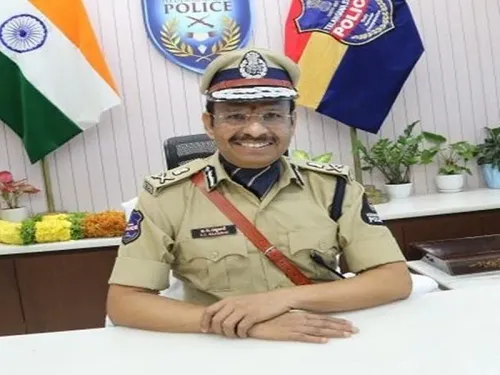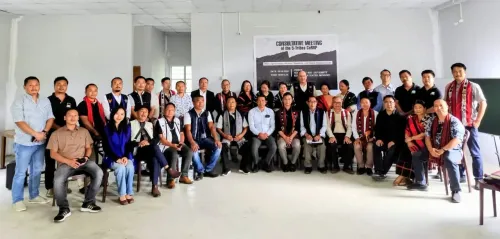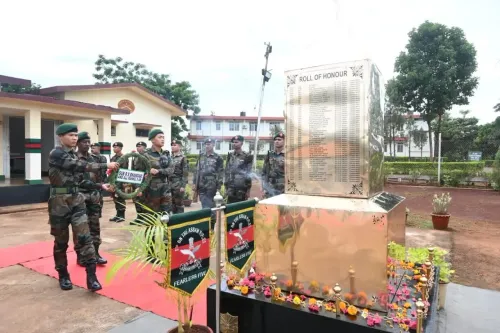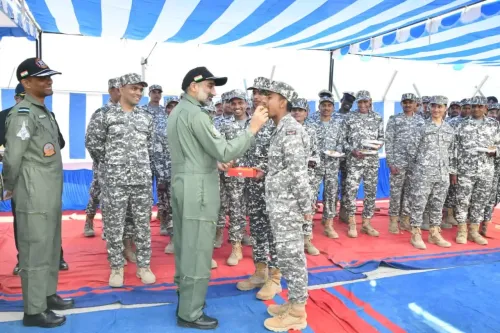Are India’s security threats really shifting beyond traditional military conflicts?
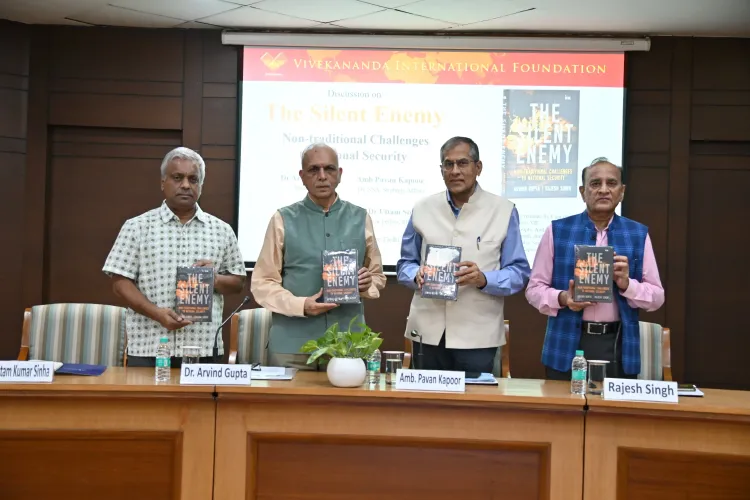
Synopsis
Key Takeaways
- NSCS is evolving to address modern security threats.
- Economic warfare and climate change are key concerns.
- Strategic communication is essential in managing public perception.
- Collaboration between NSCS and governmental bodies is improving.
- Empowering NSCS must be approached cautiously.
New Delhi, Sep 3 (NationPress) The National Security Council Secretariat (NSCS) is in the midst of a profound transformation, adjusting to a new landscape of security challenges while addressing ongoing internal issues, stated Deputy NSA Amb Pavan Kapoor on Wednesday in New Delhi.
During the unveiling of the book 'The Silent Enemy' co-written by former Deputy NSA Arvind Gupta and seasoned journalist Rajesh Gupta, experts deliberated on the expanding role and influence of the NSCS, despite facing pushback from conventional governmental departments.
The event, hosted at the Vivekananda International Foundation, underscored the transition from a narrow military perspective to a more comprehensive approach to national security that encompasses economic, social, and technological factors. Deputy NSA Pavan Kapoor highlighted that modern threats extend beyond traditional military engagements.
He identified India's susceptibility due to an excessive dependence on a single nation for vital resources and the escalating risk of economic warfare, including sanctions and embargoes. Kapoor also pointed out that climate change presents a significant non-traditional threat, potentially causing social upheaval and food insecurity, referencing the recent floods in Punjab.
Moreover, Kapoor accentuated the necessity of effective strategic communication, especially in combating misinformation, while discussing 'Operation Sindoor' and the importance of strategic messaging to shape public perception and thwart disruptive elements.
The dialogue recognized the historical tensions between the NSCS and various 'line ministries' across different regions, which have often approached NSCS's advisories with skepticism. However, it was acknowledged that both parties are increasingly collaborating on these non-traditional security issues.
Additionally, the conversation ventured into the future of warfare, challenging the outdated belief that conflicts will be brief and decisive. Drawing on examples from the wars in Ukraine and Gaza, the speakers argued that these assumptions hold little relevance. Dr. Arvind Gupta also contributed to the debate regarding the potential empowerment of the NSCS.
While he acknowledged the possible advantages of 'empowering the council,' he also cautioned that conferring powers through legislative means could be perilous and destabilizing.
Both Amb Kapoor and former deputy NSA Gupta concluded that the NSCS has already experienced a remarkable evolution, with its role—especially in areas like cybersecurity and the economy—significantly advancing over the years, underscoring its growing importance and influence without necessitating additional legislative authority.

